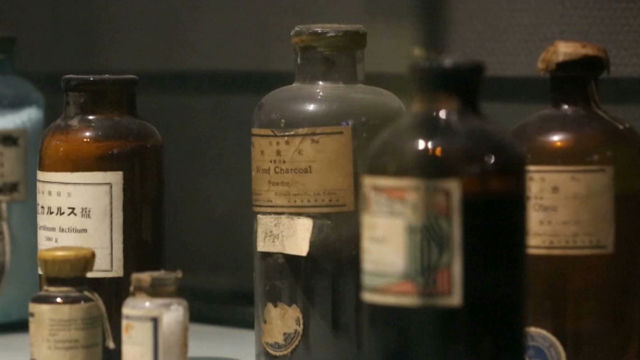During World War II, the Japanese army carried out biological warfare against thousands of Chinese victims.
Now, nearly three-quarters of a century later, a Japanese group has come to China to visit a former site of some of those atrocities.
CGTN’s Frances Kuo reports.
Northeastern China’s Changchun city was where Japanese germ Unit 100 was based during the Second World War.
This week, a group of Japanese oral history researchers visited the site.
As part of the Imperial Japanese Army, Unit 100 used Chinese people to research the impact of livestock bacteria on humans. It worked closely with another notorious germ unit – the 731.
“The germ weapons of Unit 731 were directly targeted on human beings while Unit 100 used both humans and animals to research fatal weapons,” Kuniaki Ushigoe of the Japan-China Oral History and Culture Institute said.
The Japanese scholars brought oral testimonies with them which disclosed a previously unknown germ unit – the 513.
Its members came to Unit 100 for bacterial training and then were sent to the battlefield.
Hundreds of thousands of people died from biological weapons during World War Two, according to Chinese researchers.
The night before Japan’s surrender in August 1945, Unit 100 shipped away its equipment and destroyed the site.
The only structure left in Changchun now is a chimney of a furnace used to burn bodies carrying germs. A Japanese anti-war activist says the evidence sparks reflection.
“Now many in Japan still don’t acknowledge our wartime crimes in China. However, we should come here and verify the fact personally,” said Kiyoko Takahashi, a Japanese anti-war activist.
China says it wants Japan to admit its war crimes, not to renew hatred but to learn from it.
“My father was a soldier, and he felt very sorry for what they had done to the Chinese people. I have the same feeling,” Misako Watanabe of the Japan-China Oral History and Culture Institute said. “As a child whose father joined the war, I think the younger generation plays a key role in the further deepening of the friendly exchanges between China and Japan.”
2018 is the 40th anniversary of the “Sino-Japanese Treaty of Peace and Friendship.” A time for these Japanese scholars, they said, to understand the importance of not repeating the past.
 CGTN America
CGTN America

